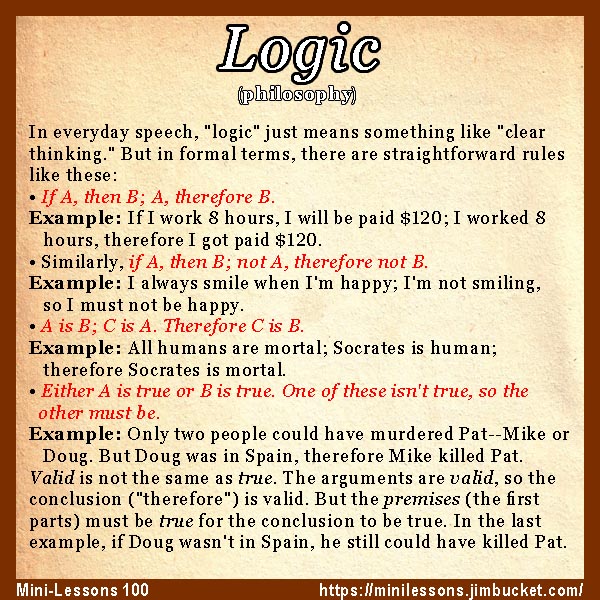MURPHY'S LAW (Idiom)
Murphy's Law may have originated in the scientific or engineering community (but no one knows who "Murphy" was). It is usually stated:
Anything that can go wrong, will go wrong.
Some call this "Murphy's First Law" because there are many (maybe hundreds of) corollaries. Here are a few:
- Nothing is as easy as it looks.
- Everything takes longer than you think it will.
- If everything seems to be going well, you have obviously overlooked something.
- Every solution breeds new problems.
- If your project doesn't work, look for the part you didn't think was important.
- The ideal resume will turn up one day after the position is filled.
- No matter how good a bargain you get, the price will drop after you buy it.
- A spoon of wine in a barrel of sewage makes sewage. A spoon of sewage in a barrel of wine makes sewage.
Navigation:
- View this post on Facebook or Instagram
- Go to the Mini-Lessons Index







.jpg)



